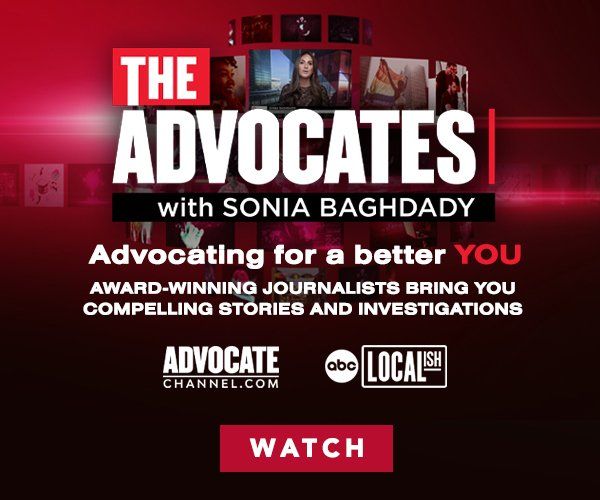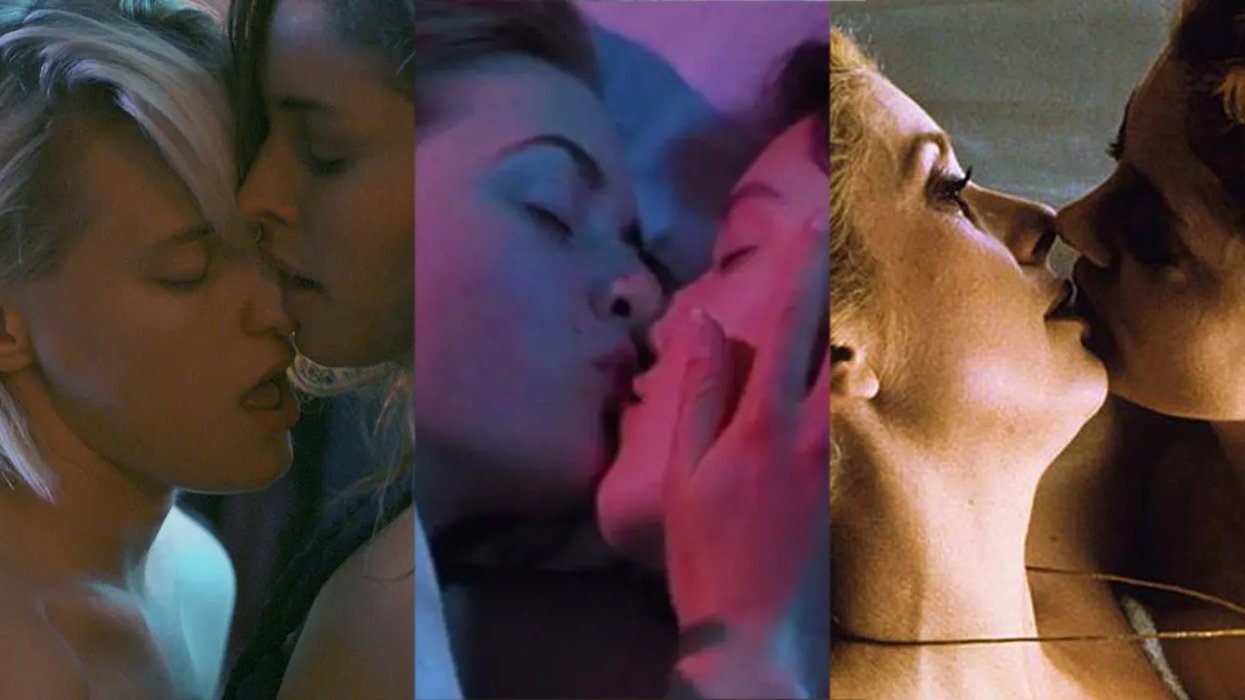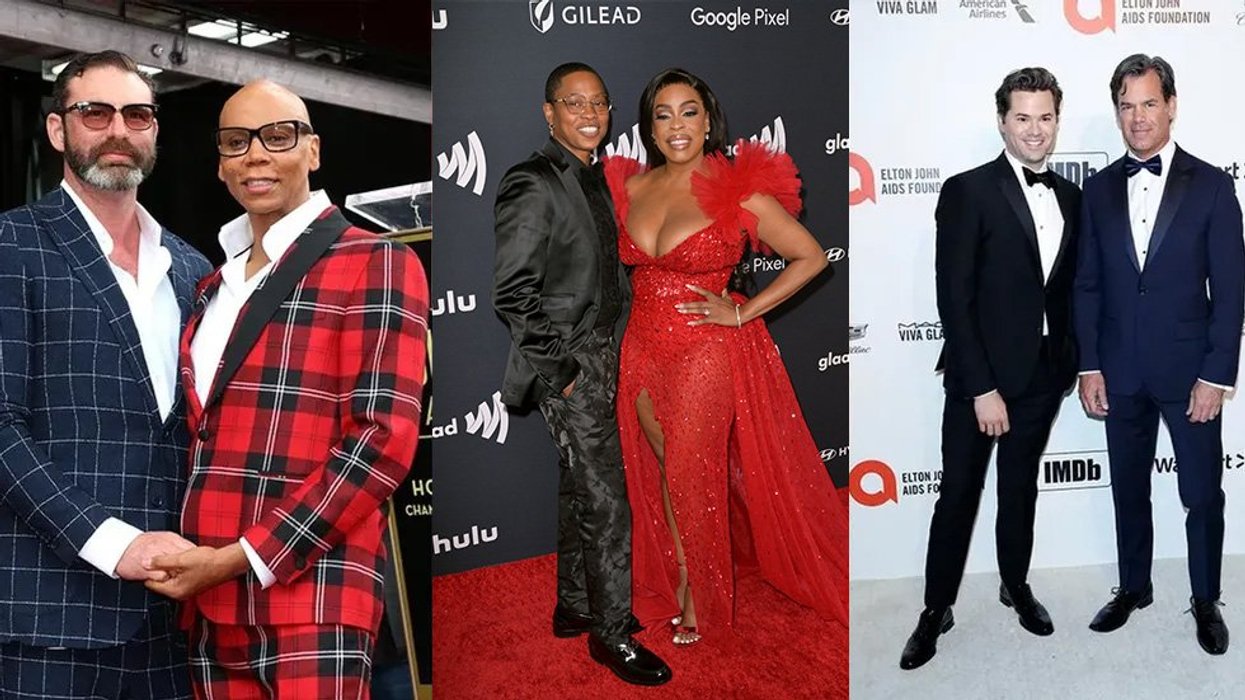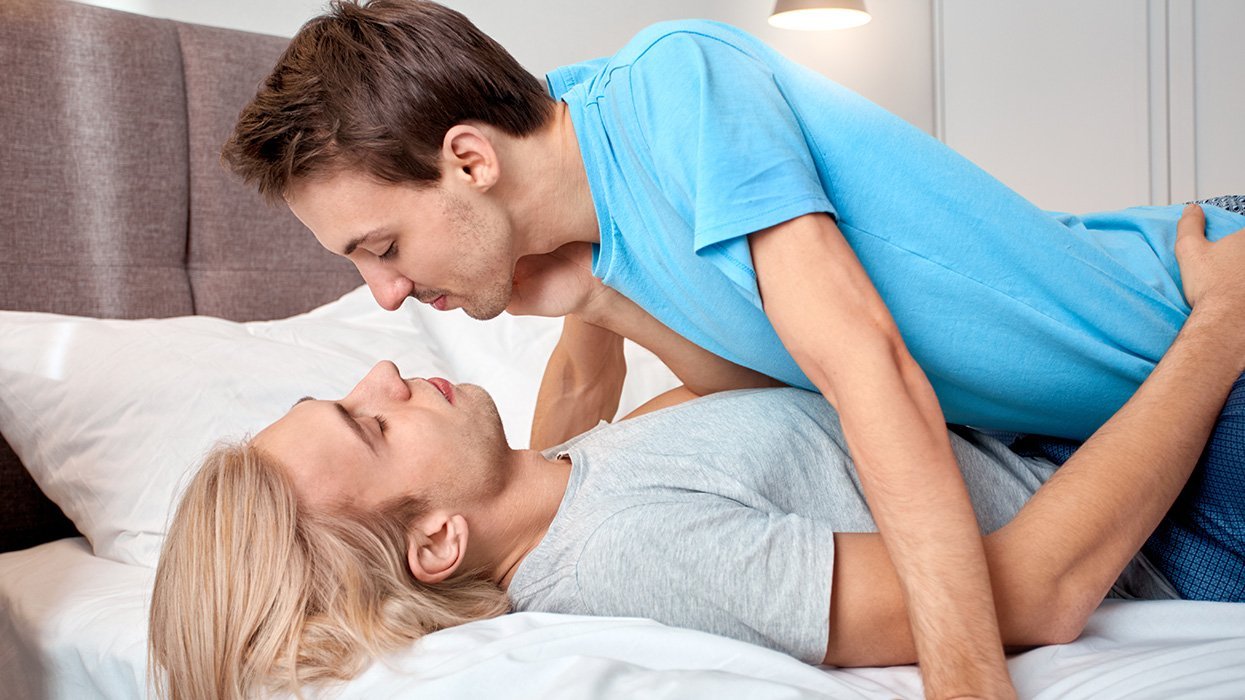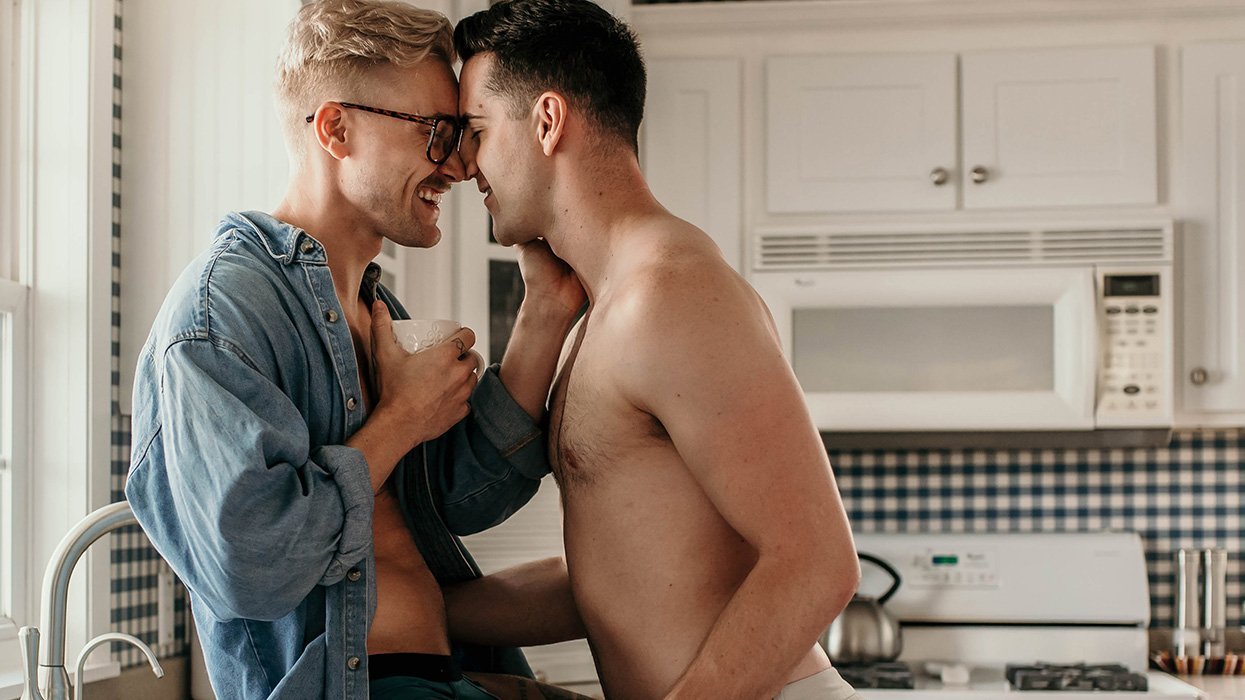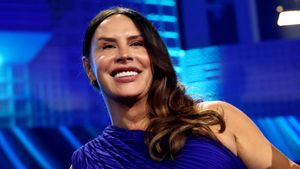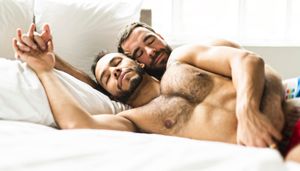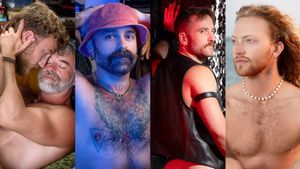In a climate in which high-profile celebrities including Cynthia Nixon and Wanda Sykes have talked openly about falling for women later in life, in which women often feel freer to explore various aspects of sexuality, some are finding that after years of marriage and / or dating men, that they are attracted to women, and often capable of falling in love with another woman.
Editors of Dear John, I Love Jane, Candace Walsh and Laura Andre – a couple in life – inspired by Candace’s later in life experiences, sought to compile often humorous and heartrending stories of women who came to the realization they were attracted to women after many years as unfettered straight women.
The result is a collection of 27 essays about women who fell in love with other women after they had taken it for granted they were heterosexual.
Walsh and Andre chatted about their motivation for creating the book, working together as a couple, sexual fluidity, and well, love as universal.
What was your motivation for writing this book?
Candace: I went searching for a book like Dear John, I Love Jane when I was going through my own transition from straight identified to seeking out a relationship with a woman. I found books that were somewhat helpful, but the two anthologies I could put my hands on felt dated to me. I wanted to see myself in the stories, and sometimes I did, but the world has changed so much in the last decade. I felt part of a wave of women who were discovering their truth not only post-Ellen, but with a whole new vocabulary that wasn't limited to the words gay, straight, and bi.
What does "Sexual Fluidity" mean to you, and what part does it play in this book?
Candace: To me, sexual fluidity means that a woman who identifies as straight in 1986 can also identify as gay in 2010, without being a liar in either moment. It also means, in the best of both worlds, that there would be a suspension of judgment around women who come out late (latebians), or go from being in same sex-relationships for years to deciding to partner with a man, or decide to be open to what feels alluring. I feel like in the past, we all had to check a box and then stick with it or else run the risk of getting called out for being confused, chicken, or out-and-out deceptive. Things aren't that easily defined. People change, grow, and shift.
Women's desire and sexuality has been woefully under-researched, and as a result, we've been given an identity wardrobe with ill-fitting, restrictive garments and asked to choose which one fits the best. Never mind what the garment would be if it were custom-made to suit us as individuals and as women.
Dr. Lisa Diamond, author of Sexual Fluidity and writer of our book's foreword, shares that as she did research, every five years, many in her group of women checked different boxes when it came time to pick a sexual label for themselves. They did not stay straight if they ID'd as straight. They did not stay lesbian if they once ID'd as lesbian. Some women went from choosing "straight" to choosing "unlabeled." The older women got, the more they realized that a) their desires had shifted and b) that was okay. There are many women who don't shift, and I'm not advocating that everyone should mix it up for the heck of it. But many times, life presents us with opportunities to learn more about ourselves after we have assumed that we know all there is to know.
In terms of what role sexual fluidity plays in this book, I would say that it plays a major role, because this book is not generally "I was unaware of myself and what I really wanted, or I knew I was gay and I rejected it, and finally, I came out." Sometimes it actually is. But many times, the women share how they were walloped over the head by an unexpected crush, or fell in love with another woman in sort of an osmotic way. They realized, "Hey, I'm in love with that woman. I want to drop everything and follow her to the ends of the earth. How do I square this with my life to date?" And there are so many answers to that question. The women in the book shared their true stories of how their lives changed and how they assimilated their new identities into their current lives. It's very powerful stuff.
More on next page...
\\\
(continued)
Was this book intended to culturally challenge or questions certain things?
Laura: We always considered the book to be more of a resource for, rather than a challenge to the current cultural climate, which, for the most part, expects women to partner permanently, or at least consistently, with men and vice versa. I think the real challengers are the women whose stories appear in the book. They are the ones who first had to confront deeply ingrained cultural norms, as well as their own individual sets of assumptions, before finding their sexual selves and living lives that are honest. In that sense, I think we conceived of the book as a reflection of this certain--and I hate to use this term, because it sounds like it's trendy--"phenomenon" that is women leaving men for women.
It's not trendy, but rather just one aspect of a long, and sometimes painfully slow tide that is making it okay for people to find and express their true sexuality. Having said that, however, I suppose the book itself might be considered a challenge, or perhaps a device through which people can begin to question the supposedly fixed nature of sexuality and why it has such a hold on so many people who find themselves unhappy, despite doing their best to live up to the expectations they've inherited from the current culture.
How do you go about collecting all these stories that are in this book?
Laura: We thought it might be difficult to reach people willing to tell their stories, so we tried to cast a wide net. We also did not have an advertising budget, so we posted the call for submissions on as many blogs, mailing lists, forums, and websites as we could find who were willing to publish it for free. We got a large number of submissions as a result of the call appearing on the AfterEllen website, and a significant number of submissions from the call posted on LambdaLiterary.org, as well as our publisher's website, SealPress.com. We sought a diversity of voices, and also targeted resources where the call would likely be seen by women of color, and by women who didn't necessarily consider themselves writers, either by trade or avocation. We also kept our eye out for people who were writing about our topic, and directly recruited a few writers ourselves. It was arduous, but it paid off, in that we received around 130 submissions and had a tremendously difficult time narrowing them down to the twenty-seven that appear in the book. We're still finding writers whose stories we wish we had known about as we were putting the book together--I think that's a good sign that the book is timely and fresh.
Was there any reason that you found this topic (women leaving men for women) so interesting?
Candace: After my marriage to a man ended in 2006, I decided to date women. I had wondered about it my entire life, and felt like I had an opportunity to really explore it. I was hungry for stories by other women who had a similar journey. And I wanted to capture today's stories for all of the women out there who were questioning and questing and would do so in the future. I saw Cynthia Nixon, Carol Leifert, Wanda Sykes, Portia de Rossi doing what I was doing. I felt like it was a new era in terms of acceptance and willingness to go that route.
Do you believe that this is a book a lot of women, lesbian and bisexual will relate to?
Candace: Yes, I do. I think straight women will relate to it, too. It's about defining love for yourself on your own terms, instead of accepting and making do with a received definition of what one's romantic life should look like. I think gold-star lesbians might enjoy being privy to a series of intimate revelations from women who didn't know they were gay when they were eight years old, who might have a complicated romantic history, and yet might also be the women who they end up falling in love with. I think there's a lot of fear in the lesbian community about us latebians. I remember going to my first women's events, being straightforward about my deal when I talked to women there, and being looked at like I had two heads. There was an assumption that I was just playing, or hiding, or experimenting. Isn't every date an experiment? I honor that many lesbians have been hurt by women who were indeed experimenting or playing at being bi to turn on some dude. But there's so much more to it than that.
I also think that for every woman who leaves the heterosexual world for a woman, there is a circle of family and friends who is left wondering what the heck happened and what it looked like from the inside. This book will give those individuals a deeper understanding of how it all went down. Reading this book is a way to draw near without being intrusive. I hope my parents read it.
Laura: Well, speaking as a so-called "gold star" lesbian, which I take to mean someone whose always considered herself lesbian and never been with a man sexually (does my 10th-grade boyfriend, who I reluctantly kissed once, count?), I'd also add that this book is very affirming. To see what others have gone through just to be themselves makes me appreciate all the more the relatively smooth path I've traveled. At the same time, for a variety of reasons, I can really relate to the "Oh my God, is this really happening to me?" emotion that so many of the writers express. I think a lot of women and men, regardless of sexuality, will be interested in how this book also details what it's like to undergo a major, totally unexpected life change, and how to do it gracefully.
More on next page...
\\\
(continued)
What was the most rewarding part about creating this book for you?
Candace: Laura and I are engaged to be married, and have been together for two and a half years. It was so delicious to make this book with her. Some couples have a hard time working together. We got to experience how vastly we are compatible in ways that we never would have discovered if we hadn't edited Dear John, I Love Jane. I tend to get lost in each person's emotional truth and then lose my ability to judge a story on a stringent editorial level. She has a much easier time staying neutral. I have a weak organizational side. She tracked every submission and made sure everyone knew where they were in the process. I am a confident line-editor. She is a thorough copyeditor. We got to discuss different essays, laugh at the funny lines together, tear up at the poignant moments. Sharing this wild ride made us even closer than we already were.
I also loved reading all of the submissions. I no longer felt like I was alone. I experienced so many "Me too!" moments. I also enjoyed reading about women who had completely different experiences than I did. It gave me an intense appreciation for every person who sat down to pound out their stories. They were all altruistic; they took a moment to reveal what they went through, in the hopes of making someone else's journey a little easier, instead of curling up in a self-protective ball.
Laura: The contributors have been so grateful to have a chance to tell their stories, and I can sense their excitement growing as the book nears publication. It's very rewarding to have facilitated that kind of collective release. On a different note, we learned a lot building the book's website ourselves. And I loved working with Candace. We hope to do another book together soon.
Candace: Laura built the website. She's just being modest. I wouldn't know an html code if it bopped me on the head.
In your opinion, what are the different reasons women leave men for women as opposed to being single and seeing women?
Candace: I should clarify that the subtitle doesn't necessarily mean that women went directly from relationships with men into the arms of women. There are many women in the book who severed their relationships with men, and then sought out women. But they still left the heterosexual world and entered the world of same-sex relationships. There is a different answer for each woman who does so. I can't really boil it down to a pat answer. That would disrespect each woman's journey. I can't say, "Oh, they all got tired of men leaving their underwear on the floor" or "They all got tired of the unequal division of housework" or "They stopped being able to deal with hairy backs" or "They felt like women were just SO SOFT," because that is not what the book is about. This book is about the wily, chimerical nature of desire, in a time when we're newly able to break out of prescriptive, limiting boxes that don't do us justice.
If you would sum up what the reader can expect from this book what would it be?
Candace: Secrets, told. A combination of scaling the heights of earth-shaking desire and dizzying exploration, grounded self-awareness, quick radical shifts of self-knowledge, slow and steady surfacings of truth. Very good writing. It's pleasurably erotic at times and quiescently thoughtful at times. We ruthlessly edited the manuscript to give the reader a series of valuable payoffs at every opportunity, while also holding space for the voice and presence of each writer.
When can we go out and buy this book and where?
It's available now on Amazon, Barnes & Noble, and other online booksellers . It will be carried in the major chains and small independently-owned bookstores, and if you don't find it there, please request that it be ordered.
Follow SheWired on Twitter!
Follow SheWired on Facebook!
Be SheWired's Friend on MySpace!









































